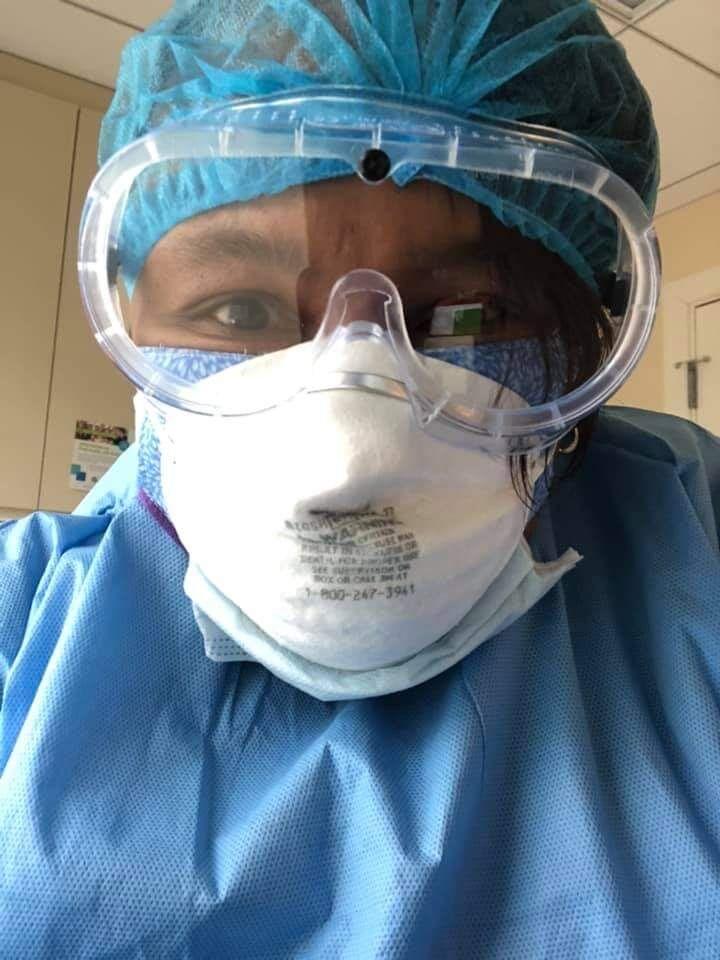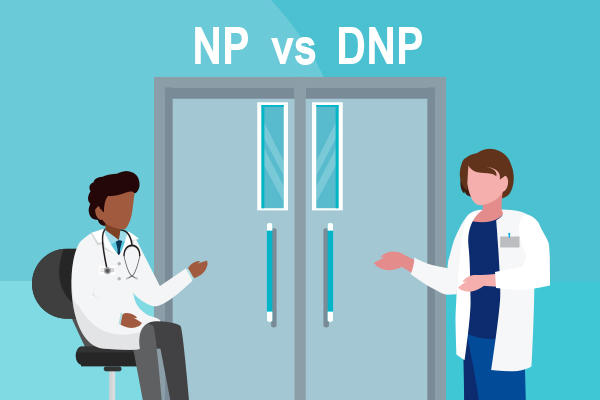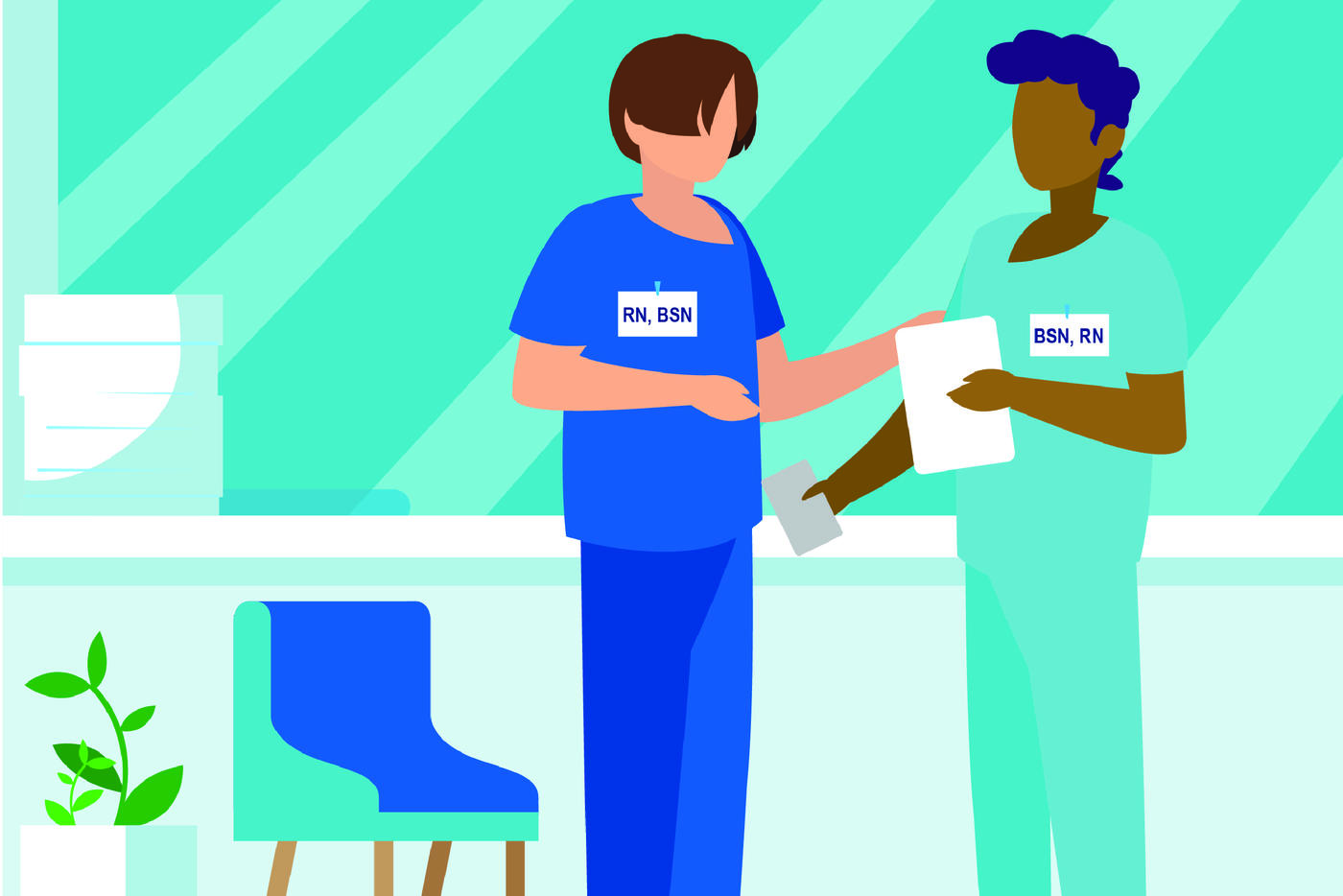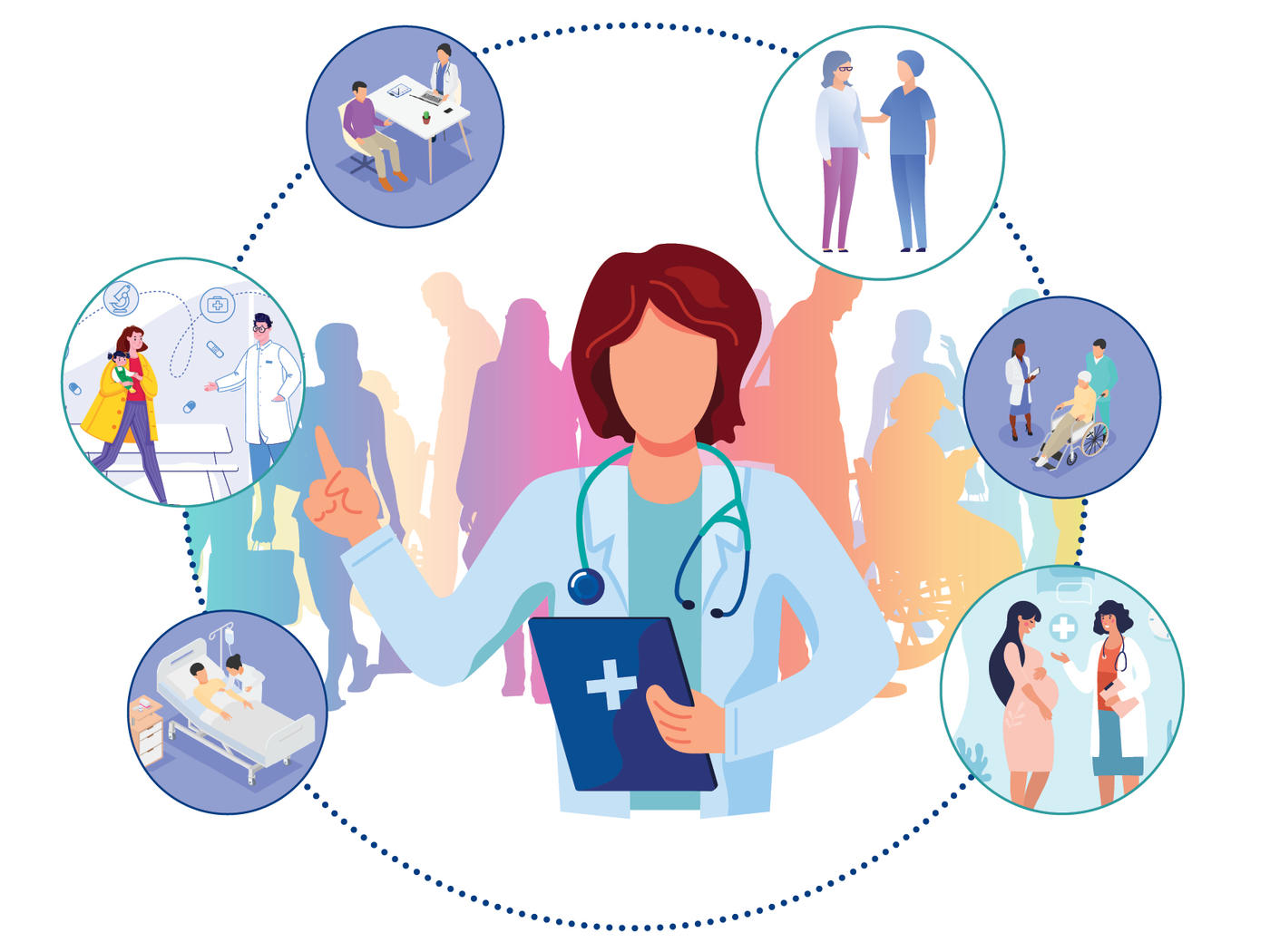Featured
Tags
Share
- Home / Blog / Nursing Today / Geriatric Nurse Shares the “Devastating Effect” of COVID-19 on Elderly Patients
Geriatric Nurse Shares the “Devastating Effect” of COVID-19 on Elderly Patients

In the middle of the COVID-19 lockdown in spring 2020, Chante Wright described the loneliness she saw among her elderly patients as a “sharp pain” in her heart.
Now, as COVID-19 cases spike again, the devastating effect the pandemic is having on elderly patients “is a surreal situation,” says Wright, a 2020 graduate of Chamberlain’s Master of Science in Nursing degree program.
“So many of our residents are frail and rely on the comfort of their friends and family to see them through,” says Wright, resident care manager at Aspired Living, a senior living center in La Grange, Ill. “But now that’s been ripped away from them. Over the months, they’ve just become more and more depressed, weak and sad, and it is heartbreaking to see them.”
Earlier in the pandemic, Wright served as the director of health and wellness at an independent living center for the elderly in the Lakeview neighborhood of Chicago. Both the facilities she has worked at through the course of COVID-19 have placed a ban on visitors, like many nursing homes across the country. That means family members cannot come inside and visits are restricted to outside windows (when a resident lives on the first floor), FaceTime, phone calls and socially-distanced and limited, timed parking lot visits during warmer weather.
And, that’s when nursing staffs have the time to arrange for those connections with relatives and loved ones. Healthcare professionals in the facilities have also been hard hit by the pandemic, facing staffing shortages and the challenges of donning and removing PPE attire every time they enter the room of a COVID-19 patient, or one who is quarantining.
The downside to these strict rules: Seniors are hurting emotionally.
“The hardest challenge is the uncertainty,” Wright said. “This is just coming at us so fast and so furiously, it’s so confusing to know what to do, to make it better for what is next.”
With experts saying the pandemic has turned from a medical to humanitarian crisis, and the coronavirus death toll expected to grow significantly, Wright says she and her staff are doing everything they can to “help our elderly patients know they are not alone.” In addition to medical care, they are laser focused on encouraging empathy, compassion, and care as the prescription to combat emotional isolation.
“COVID has changed the face of nursing,” she says. “We try to assure them that everything’s going to be fine, that they will get better. But the amount of stress that has been put on us to keep people happy and try to keep them healthy, and balance our own personal lives, is taking its toll.”
By mid-March, when Wright was overseeing the nursing staff at the senior center in Chicago, 30 residents out of 46 were diagnosed with COVID. Ten of them died.
“We were struggling to get a handle on it and sending patients off to local hospitals,” she says. “By May, after we had done the quarantine lockdown, we set up safe ways residents could see their families, two visitors at a time for 15 minutes or a half hour in the parking lot. There was no hugging, no touching. Everyone had their temperatures taken and had to wear masks. It was and still is so scary and hard for the elderly to understand this. What do you say when they ask if they will ever see their daughter, or grandkids again?”
But she and her team keep working tirelessly and encouraging the seniors’ loved ones to also find creative ways to communicate through cards, letters, signs and gifts.
“The best thing we can do right now to care for our loved ones, is to stay home, to keep them safe,” says Wright. “Some people are in an uproar about their rights to not wear masks or travel wherever they want. But I say to them, ‘this is real. Please, please take this seriously.’”
By Mary Beth Sammons
More from Nursing Today
Request More Information
To receive the Chamberlain University Program Guide, including associated career paths, please select a program of study.







